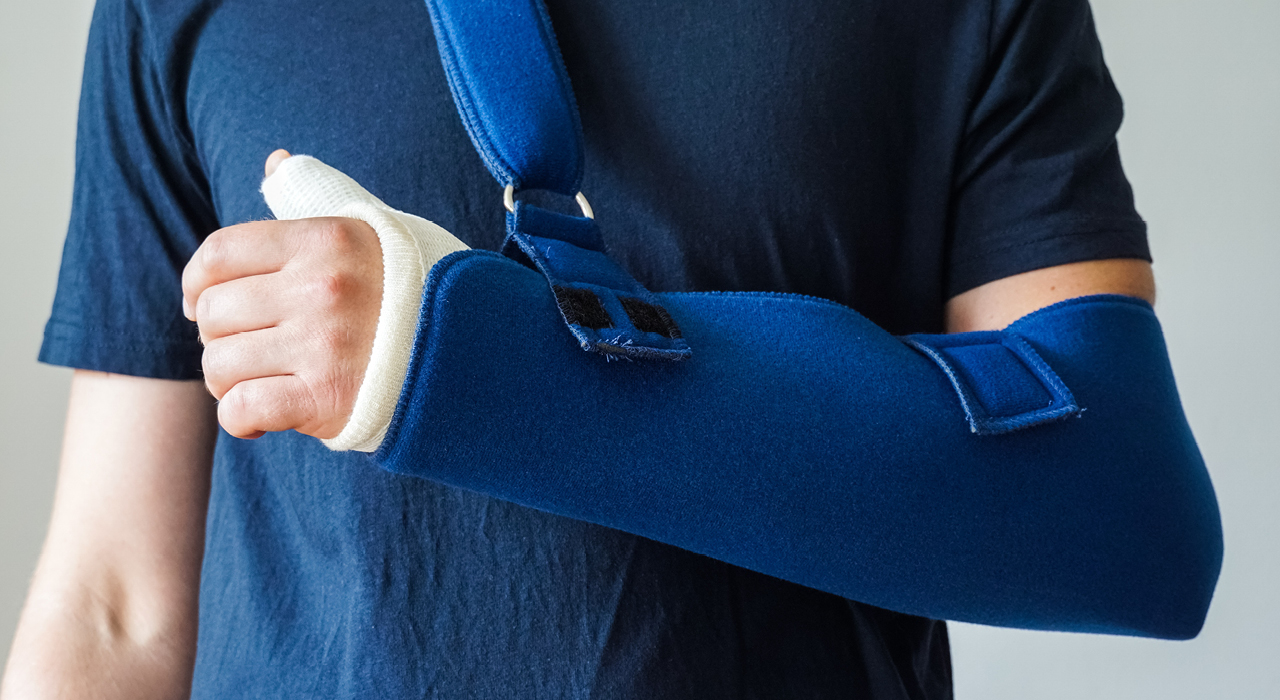Carpal tunnel syndrome is a condition where the median nerve in the wrist is pinched or compressed, causing numbness, tingling and pain.
Carpal tunnel and using a computer mouse
It is possible to treat carpal tunnel syndrome but when left unchecked, it can cause permanent, disruptive problems. There’s no scientific evidence to suggest that carpal tunnel syndrome is caused by using a computer, but many people believe their symptoms become worse while typing or using a mouse. Luckily, there are some simple steps we can take to keep our arms, wrists and hands effectively supported while we work.
What is the carpal tunnel?
The carpal tunnel is a narrow passageway in the wrist made up of tendons, ligaments and bones. Its job is to house the median nerve, which runs from the wrist to the hand and provides sensation to the thumb, index finger, middle finger and half of your ring finger.
The versatility of the human hand is one of the key features that sets us apart from other animals on the planet. The hand’s complex network of bones, tendons, ligaments and muscles evolved over many years to give us a strong grip - ideal for swinging clubs at enemies, whilst retaining the precision to manipulate small objects - perfect for crafting tools. These two traits, along with our intelligent brains, allowed us to rise up the food chain and build the advanced civilization we live in today.
Thanks to our median nerve, and the protective casing of the carpal tunnel, we are able to feel and make sense of the world around us.
Did you know...




What is carpal tunnel syndrome?
Carpal tunnel syndrome is a condition caused by the pinching or compression of the median nerve, which is the nerve that supplies sensation to a large portion of the hand. The condition is characterised by a collection of symptoms including tingling, pain and numbness in the hand and forearm.
Carpal tunnel syndrome is reasonably common and has a range of causes that may or may not be related to occupation. However, it is commonly reported amongst workers required to do a great deal of bending and straightening of the wrist, and those who use vibrating power tools.
Carpal tunnel symptoms
The main carpal tunnel symptoms are:



Because the median nerve only controls part of the hand, you are most likely to experience symptoms in these areas:
- Thumb
- Index finger
- Middle finger
- Side of ring finger closest to thumb
Over time carpal tunnel symptoms can get worse, to the extent that it impacts your ability to carry out day-to-day tasks. It can also affect the quality of your sleep. In fact, symptoms are often first noticed at night because many people sleep with their wrists bent or compressed.
In severe cases, untreated carpal tunnel syndrome can lead to poor grip strength, loss of function (especially the thumb’s ability to pinch) and permanent muscle damage.
If you are experiencing carpal tunnel symptoms, it’s important to seek advice and treatment from your GP as soon as possible.
Carpal tunnel causes
There is no one single cause of carpal tunnel syndrome. The median nerve is highly sensitive to pressure so it’s often difficult to pinpoint the exact activity that causes the symptoms.
It’s thought that some people are more likely to develop carpal tunnel syndrome than others, especially if they:







Carpal tunnel treatment
Go to your GP if you experience any symptoms of carpal tunnel syndrome. The sooner you have it diagnosed, the sooner you can work towards being pain-free and back to normal.
Your GP will examine your wrist and hand to determine the cause of your symptoms. They’ll be looking for signs of swelling, muscle wastage and levels of sensitivity.
If carpal tunnel syndrome is diagnosed by your GP, there are a number of different treatments possible. Some cases will even improve without medical intervention.
If deemed necessary, your doctor may advise one or more of the following carpal tunnel syndrome treatments:
Scientists are still trying to find out more about carpal tunnel syndrome - particularly how it can be prevented in workplaces. Alternative treatments such as therapeutic ultrasound and acupuncture are currently being investigated.
Want more information?
Our DSE experts are always on-hand to help you.
Contact us
To request more information or to seek 'no obligation' advice, please contact our experienced customer services team on +44 (0) 345 345 0010 or submit an enquiry.





